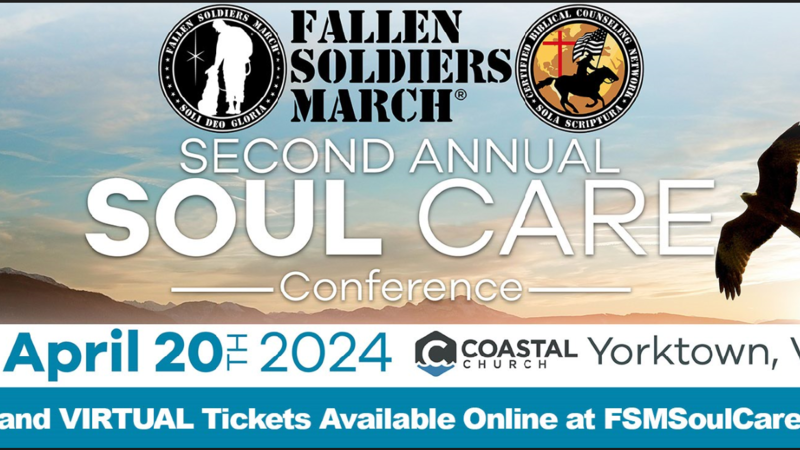Whether you are new to the field of law enforcement or you have been in it for 50+ years, it is not news to any of us that things are different today. Difficult, discouraging, challenging, defeating, low morale, low motivation, no support, wariness, an ever-growing need to have our head on a swivel, no rest for the weary – these are all words or phrases that are descriptive of law enforcement today.
There are still some bright spots including relationships, opportunities to serve others and provide assistance, and even get the bad guy, but the context and culture in which we serve today is different.
In the midst of the different and difficult context and culture I think we all need to ponder the question, "As I help others in today’s difficult circumstances, who helps me?” As a police officer and chaplain I have had the opportunity to encourage and support other officers in some of their darkest moments as well as officer’s families in the midst of their greatest fear being realized.
I have had the opportunity to respond as a Chaplain to the Wedgwood Baptist Church (Ft. Worth, TX) shooting, the Virginia Tech shooting, the Santa Fe (Texas) High School shooting, and the Robb Elementary School shooting (Uvalde, TX) to provide support to fellow police officers and other first responders. In each of these tragedies I had the opportunity to see police officers struggles up close and personally.
Amid these struggles, I've also seen heroic deeds by officers (and to a person each one who did these heroic deeds would deny they were heroes).
I talked to a chief officer who, during a school shooting engaged with the shooter and was almost shot multiple times. After repositioning to allow the SWAT team access he encountered one of his own officers with an arterial bleed who he had to tackle and apply a tourniquet thus saving his life.
I met another officer who was face-to-face with a school shooter who surrendered. As we talked, he said that if anyone had told him that he would encounters the one who brought about the havoc and death and destruction, and when he surrendered his first thought would be, "I have to protect him!" he never would have believed that would be his response. He whisked the shooter out to his unit, put him on the back floorboard and got him away from the scene to the station to protect him.
It has been a great blessing to me to be able to know so many law-enforcement officers who have stepped up during tragic, traumatic situations to do their jobs and more. We have all had opportunity to do so, even if the situation has been less dramatic than those others may have faced. The reality is that as we help others, we may need help.
I ask you to take a moment to ponder how you are doing in the current context of law enforcement. I have dealt with the aftermath of officers who have decided to end their life and have had opportunity to minister to their grieving families. I have also dealt with people who have just "checked out" from their job, from their families. Others have assessed and decided to leave law enforcement as a field/career, and still others stay in and try to maintain a positive attitude in spite of all the current challenges.
Wherever you find yourself if as you reflect you realize you are responding in a negative manner, GET HELP!
As you reflect on where you are at, I would encourage you to recognize and be honest with yourself if you are struggling. Even if you are not, I encourage you to have the humility to recognize that you could be at any time. There are many resources including EAPs, counselors, psychologists etc. available to law enforcement officers.
A less well-known resource is Soul Care. It is important for us to care for and sometimes seek help from others for our spiritual health. I have the privilege of working with an organization called Fallen Soldiers March https://fallensoldiersmarch.com. This organization focuses on providing support and biblical counseling for military and first responders.
They also offer an annual conference on soul care that will occur April 20. Please consider attending the conference and/or use the counseling resources they provide.

--
Dr. John Babler has been a seminary professor for over 30 years, first teaching social work and then biblical counseling. He has also been involved in the emergency services for over 25 years. He began as a fire fighter/chaplain, eventually becoming chief of the volunteer fire department in his community. After leaving the fire department he began to work in law enforcement and served as a chaplain and licensed peace officer. He continues to serve as a Response Commander for the Texas Line of Duty Death Task Force. John serves on a State of Texas committee that is tasked with providing a strategy of care for first responders under the Texas Disaster Behavioral Health branch of the ICS of all future state level disasters in Texas.
For corrections or revisions, click here.
The opinions reflected in this article are not necessarily the opinions of LET



Comments